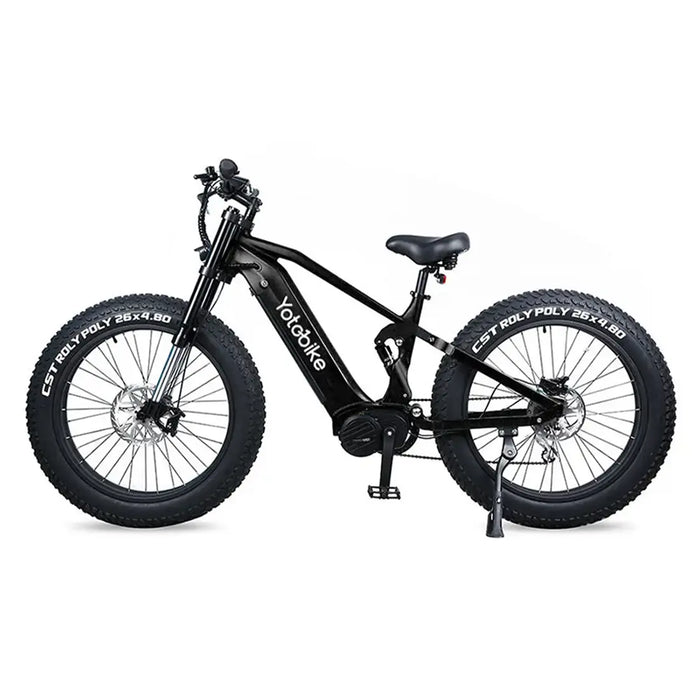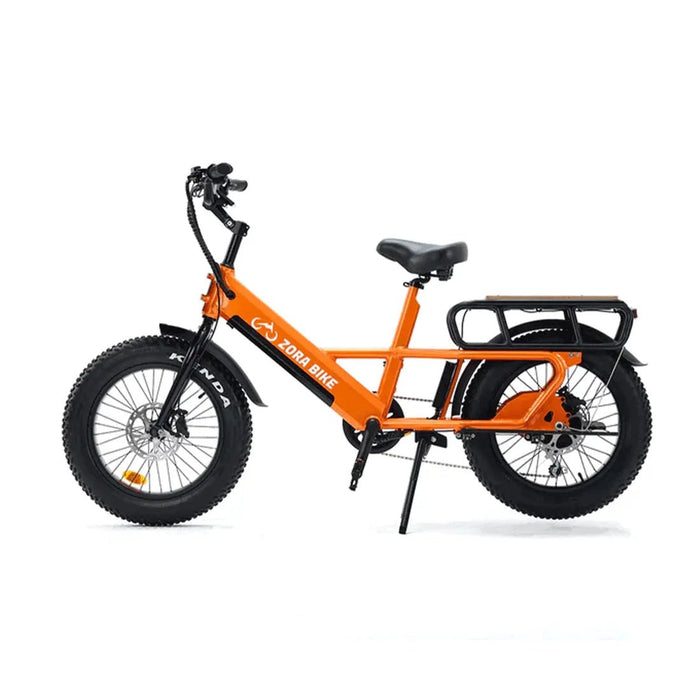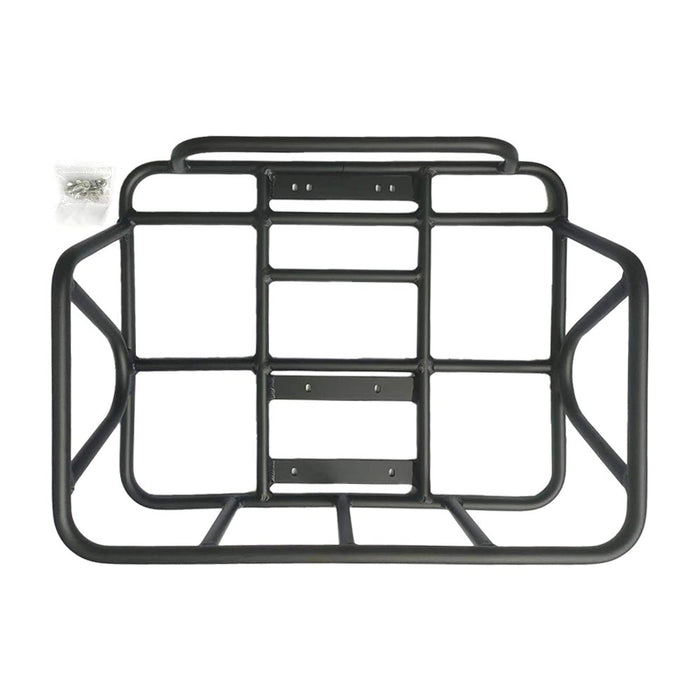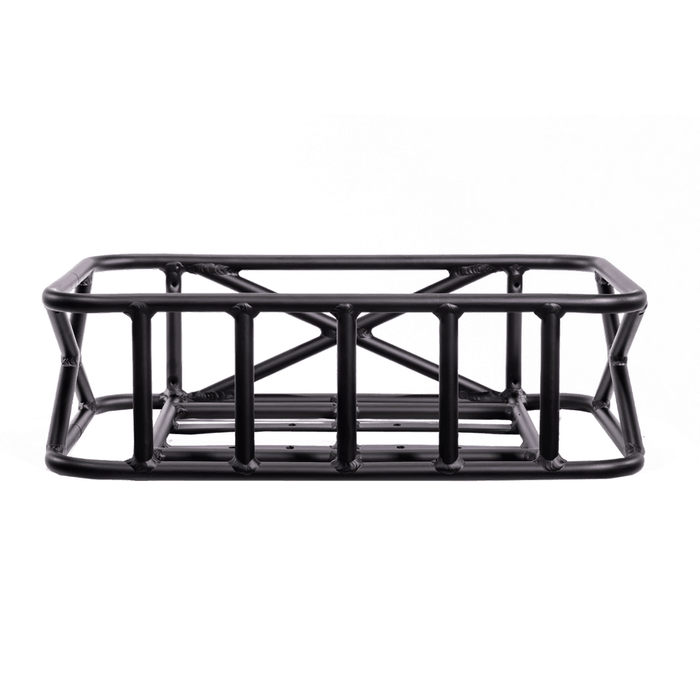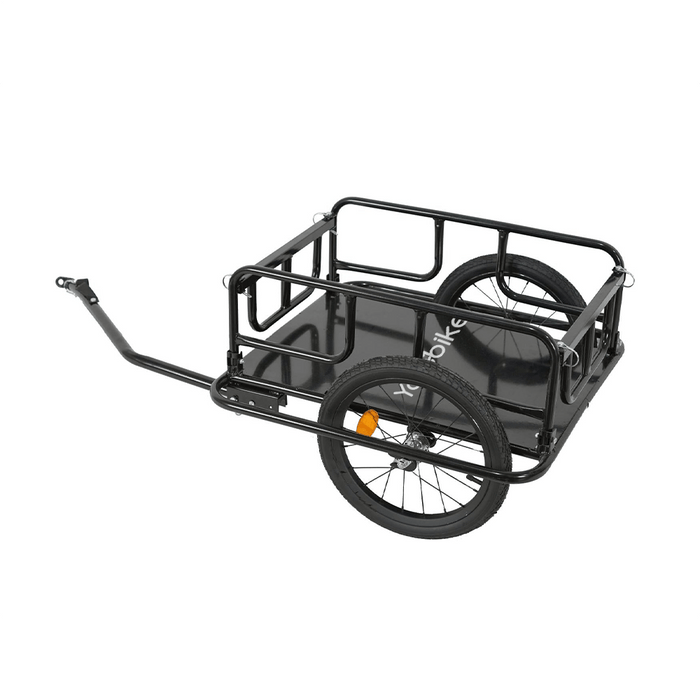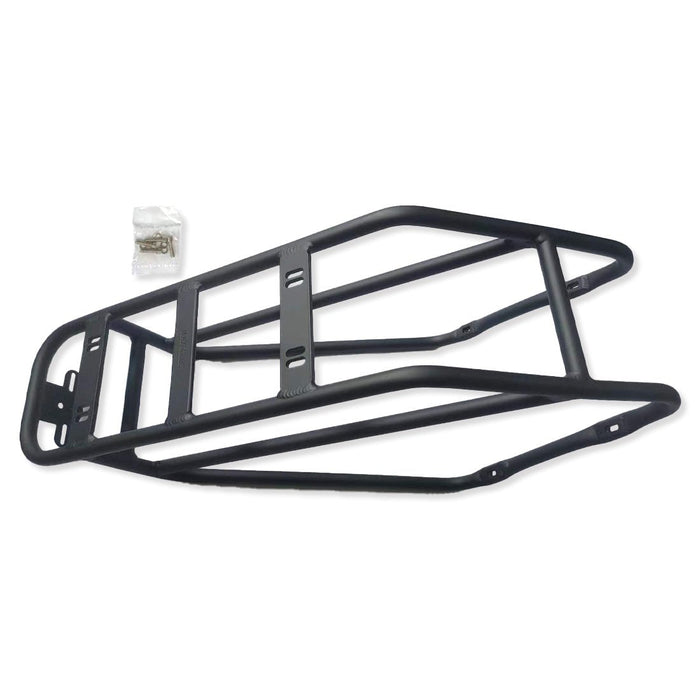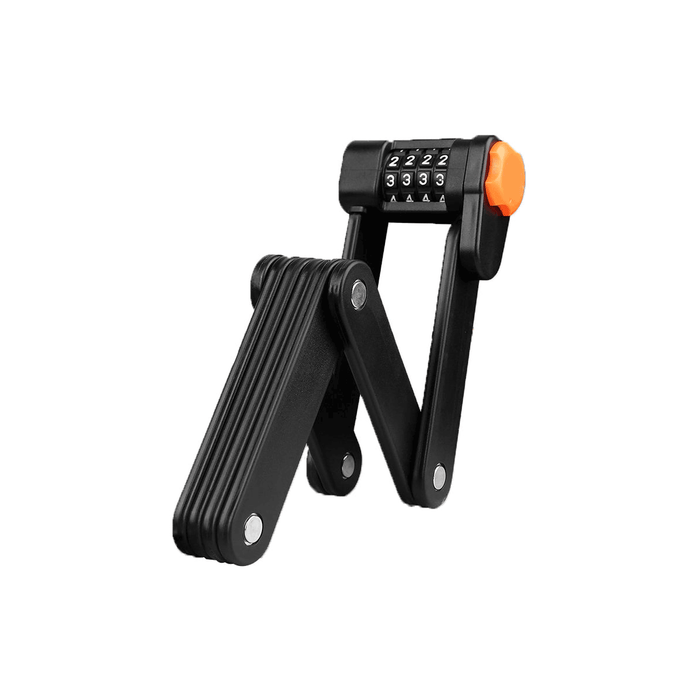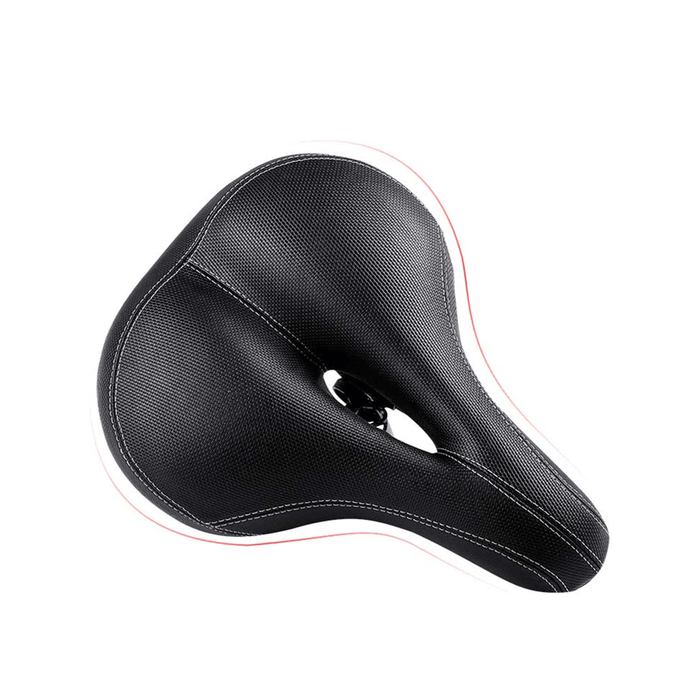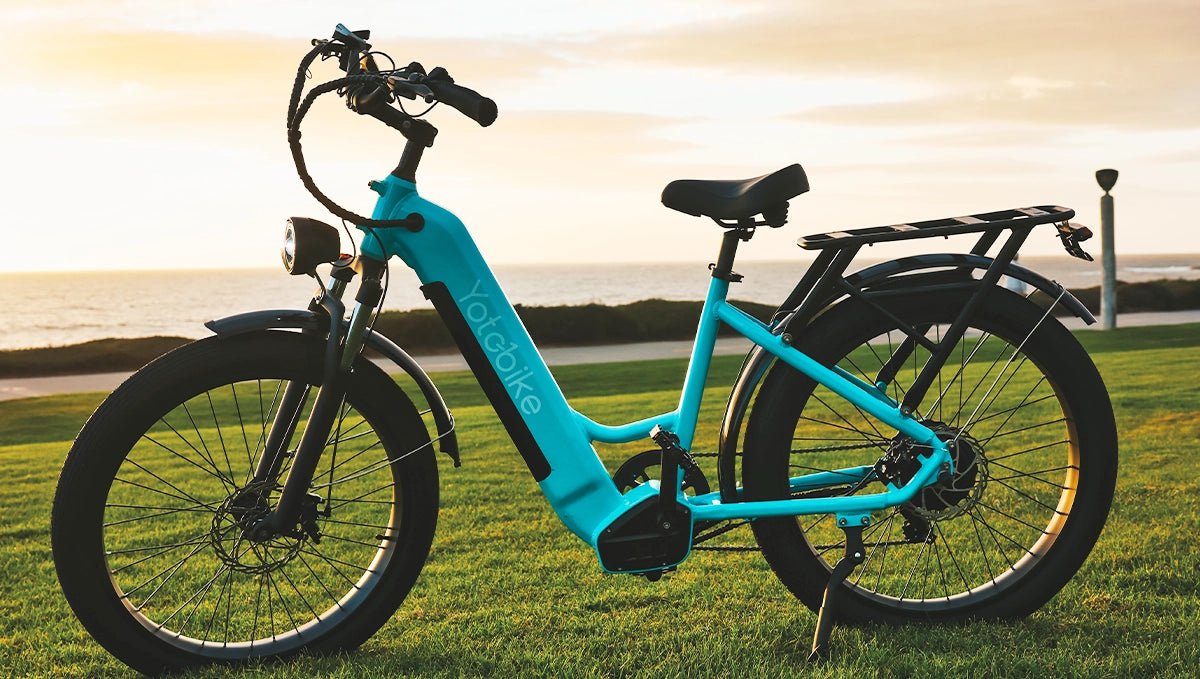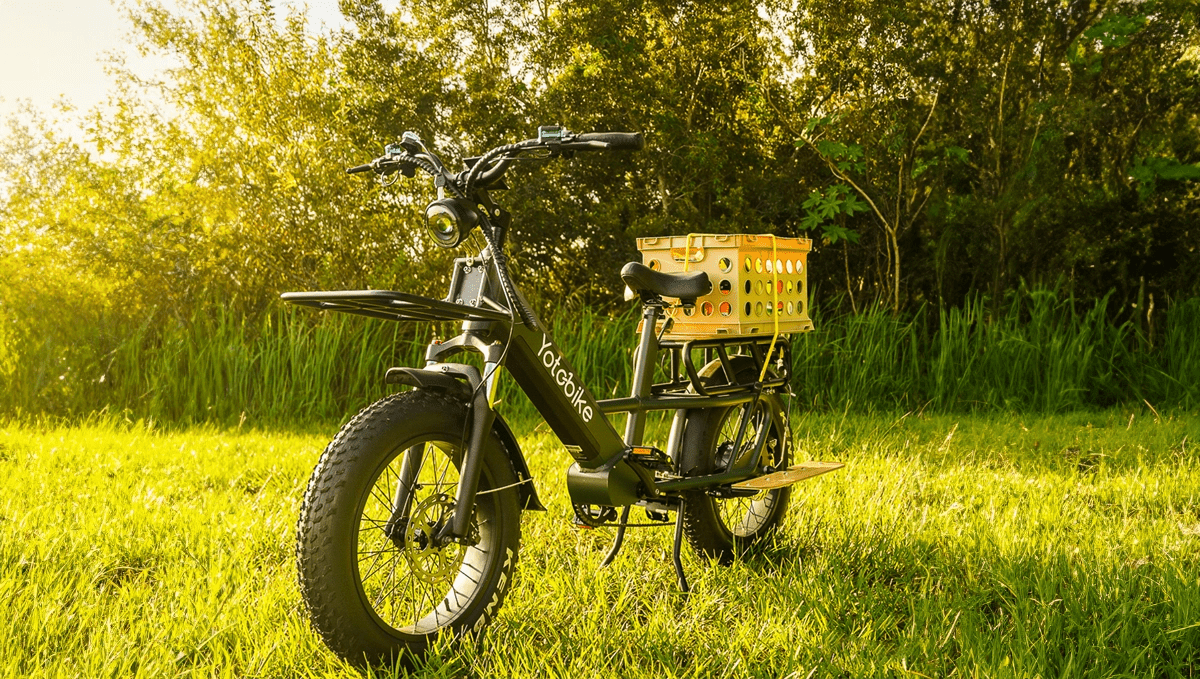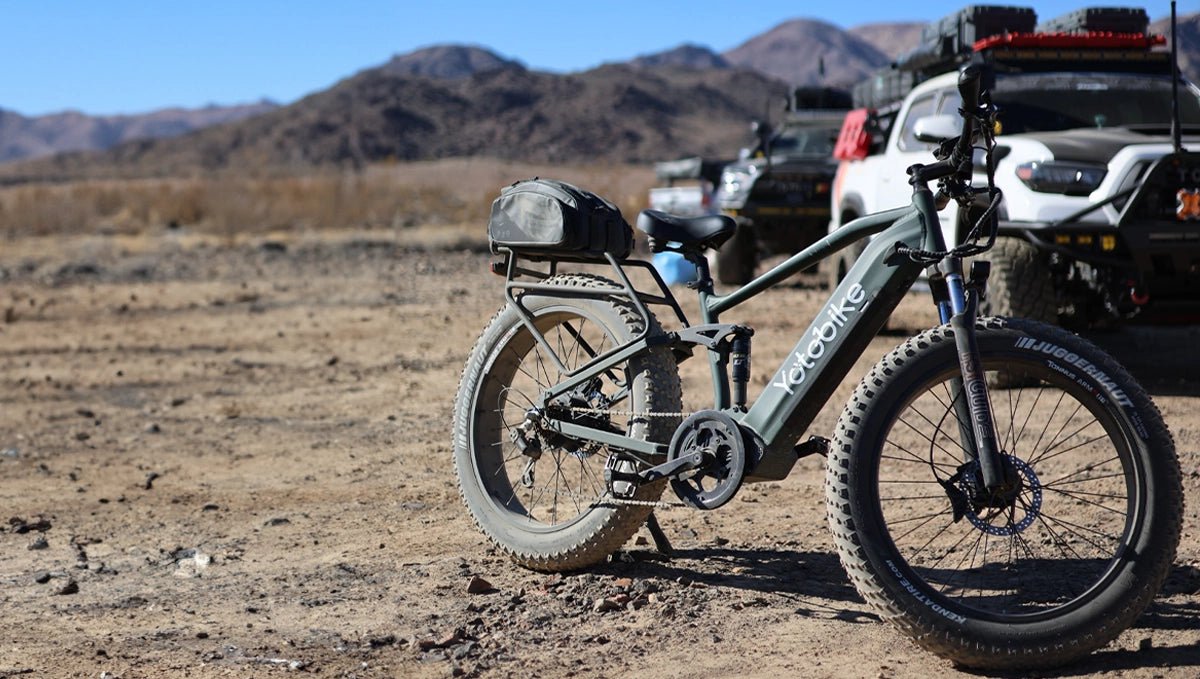
When thinking about electric bikes, or eBikes, many people focus on their convenience and power. But an often overlooked factor is weight, which plays a big role in how an eBike performs and feels to ride. Understanding how much do electric bikes weigh can help you choose the right one for your needs, especially if you plan on lifting, transporting, or storing it regularly. Let’s break down what affects eBike weight and why it matters.

What’s the Average Weight of an Electric Bike?
How heavy are electric bikes generally? Let's get straight to the point: the common electric bike tips the scales at around 40-55 pounds. (Some types of e-bikes are even heavier which can up to 80 pounds such as cargo e-bikes). That's quite a bit heftier than your typical bicycle, which usually weighs in at a nimble 11-20 pounds.
How Much Do Different Types of Electric Bikes Weigh?
We just saw how much does an electric bike weigh. Just like their traditional counterparts, electric bikes come in various styles, each tailored to a specific purpose and riding experience. And guess what? This diversity also translates to their weight! So, let's explore how different types of e-bikes tip the scales:
- City Slickers—Urban E-Bikes: Designed for smooth city rides and everyday commutes, these e-bikes focus on comfort and practicality. Their weight usually falls between 40 to 50 pounds

- Trailblazers–Electric Mountain Bikes (E-MTBs): Built for tackling challenging trails and rough terrains, these e-bikes come with durable frames, powerful motors, and thick tires. As a result, they are heavier, typically weighing between 50 to 70 pounds or more

- Compact Commuters—Folding E-Bikes: Made for portability and easy storage, these e-bikes fold down compactly while still managing a balanced weight. They generally weigh between 38 to 50 pounds
- Heavy Haulers—Cargo E-Bikes: Designed to handle heavier loads, whether it's groceries or passengers, these e-bikes come with reinforced frames and higher capacity, making them heavier. They usually weigh between 60 to 80 pounds or even more, depending on their cargo limits.
- Speed Demons—Road E-Bikes: Lightweight and built for speed on paved surfaces, road e-bikes feature slim tires and minimal designs. These e-bikes generally weigh between 30 to 50 pounds for better efficiency and handling.
Remember, these are just general ranges, and the actual weight of an e-bike can vary based on specific models and components. So, when choosing your ideal e-bike, consider its intended use and how its weight might impact your riding experience!
Why Do eBikes Weigh So Much?
Why the extra bulk? It's all about those power-packed components! The motor and battery, the dynamic duo that propels your e-bike forward, add a significant chunk of weight. Factor in other electrical bits and bobs, and you're looking at an extra 10-20 pounds right there.
H2: What Factors Affect the Weight of an Electric Bike?
Let's explore the fascinating interplay of elements that contribute to an e-bike's weight, influencing its performance and your overall riding experience.
- Battery Brawn—Power vs. Pounds: A medium-sized battery, around 500Wh, strikes a decent balance between power and weight, adding roughly 6–8 kg (13–18 lbs) to your e-bike. Larger batteries translate to extended range but also greater heft, with some exceeding 10 kg (22 lbs).
- Motor Muscle—Powerhouse or Lightweight: Mid-drive motors, known for superior power transfer and balance, tend to be slightly heavier than hub motors. As you crave more power, expect a corresponding increase in motor weight. More robust materials are needed to handle the higher output.
- Frame & Foundation—Strength and Stability: Aluminum alloy frames are a popular choice, balancing weight and affordability. Carbon fiber takes the crown for lightness but at a premium price, while steel frames are the most robust but also the heaviest. E-bike frames are inherently more substantial than traditional bike frames to accommodate the motor and battery, contributing to the overall weight.
- Wheels & Rubber—Grip vs. Gravity: Larger or wider tires, ideal for off-road adventures, inherently weigh more than their slimmer road counterparts. Each tire can add anywhere from 1.5 to 2.5 kg (3.3 to 5.5 lbs) to the total weight.
- Bells & Whistles—Feature-Packed or Stripped Down: Those handy accessories like lights, displays, GPS, and electronic shifting, while enhancing your ride, collectively add around 0.5 to 1.5 kg (1.1 to 3.3 lbs) to the bike.
- Suspension Situation—Smooth Ride or Lean Machine: Common on mountain e-bikes, suspension systems enhance comfort and control on rough terrain. But they come at a cost, with front suspension adding 2-3 kg (4.4-6.6 lbs) and full suspension adding even more, up to 3-5 kg (6.6-11 lbs).
By understanding how these factors intertwine, you gain the power to choose an e-bike that aligns perfectly with your riding style and preferences.
How Does the Weight of an Electric Bike Impact Performance?
The weight of an eBike isn't just a number on a spec sheet—it directly influences how your bike performs on the road or trail. Let's explore the key ways weight can impact your riding experience:
- Zippiness and Hill Climbing: A heavier e-bike demands more energy from the motor to get up to speed and conquer those uphill battles. You might notice a slight lag in acceleration and a bit more effort required when tackling steep inclines compared to a lighter model.
- Going the Distance: Just like a car with a full tank of gas, a heavier e-bike will drain its battery faster than a lighter one, especially when facing hills or headwinds. So, if you're planning longer rides, keep in mind that a lighter e-bike might offer a slight advantage in terms of range.
- Maneuverability: Think of it like dancing – a lighter e-bike is more nimble and easier to maneuver, especially when navigating tight corners or technical trails. However, a heavier e-bike can provide a sense of stability and confidence, particularly when cruising at higher speeds on open roads.
- Stopping Power: Heavier objects require more force to stop, and e-bikes are no exception. A heavier e-bike needs a robust braking system to ensure safe and effective stopping, so pay attention to the brakes when considering a heavier model.
- Ease of Transport: If you plan on carrying your e-bike upstairs, loading it onto a car rack, or taking it on public transport, a lighter model will undoubtedly be easier to handle.
Remember, if agility and range are your priorities, a lighter e-bike might be the way to go. But if stability and cargo-carrying capacity are more important, a slightly heavier model might be a better fit. If you're seeking a balance of performance and stability, Yotobike's ebike is a great option. It combines agility and power, making it ideal for both city commutes and longer rides, offering the perfect mix for any rider.
Conclusion
So, how much do electric bikes weigh? On average, eBikes range from 40 to 80 pounds, but the exact weight depends on the type of bike and its components. From the battery to the motor and the frame, every part adds to the weight but also contributes to the bike’s performance. Remember that there’s an electric bike out there for you. With the right balance of weight and features, you’ll be riding in comfort and style in no time!
FAQs
Is a lighter or heavier e-bike better?
It depends on your needs. A lighter e-bike is better for climbing hills and quick acceleration, making it ideal for urban commuting or hilly areas. Conversely, a heavier e-bike often provides more stability and can be better for off-road or cargo use. Choose based on your riding conditions and personal preferences.
Which e-bike weight is right for me?
The right e-bike weight depends on your riding needs. If you navigate city streets or hills, a lighter e-bike offers easier handling and better acceleration. For off-road adventures or carrying cargo, a heavier e-bike provides stability and durability. Consider your typical riding conditions, whether you prioritize portability or robustness, and choose accordingly for the best performance and comfort.
Are folding electric bikes heavy?
Folding electric bikes typically weigh between 38 and 50 lbs (17 to 23 kg), making them relatively lightweight considering their electric components. This weight range strikes a balance between portability and the need for a robust motor and battery. While they are heavier than non-electric folding bikes, their design ensures they remain manageable for carrying and storing.




